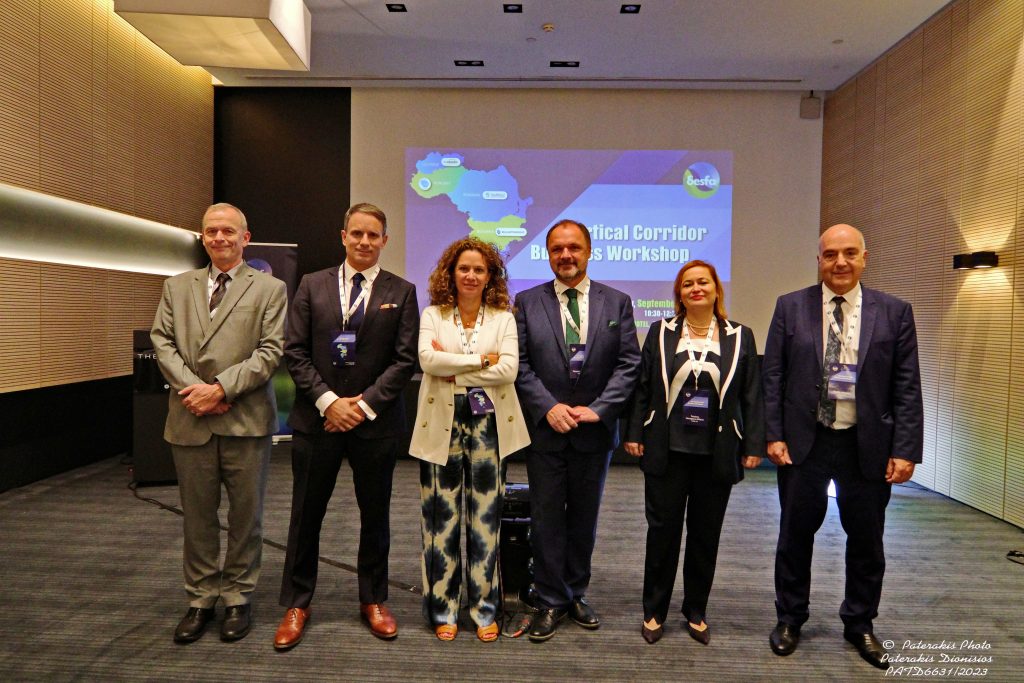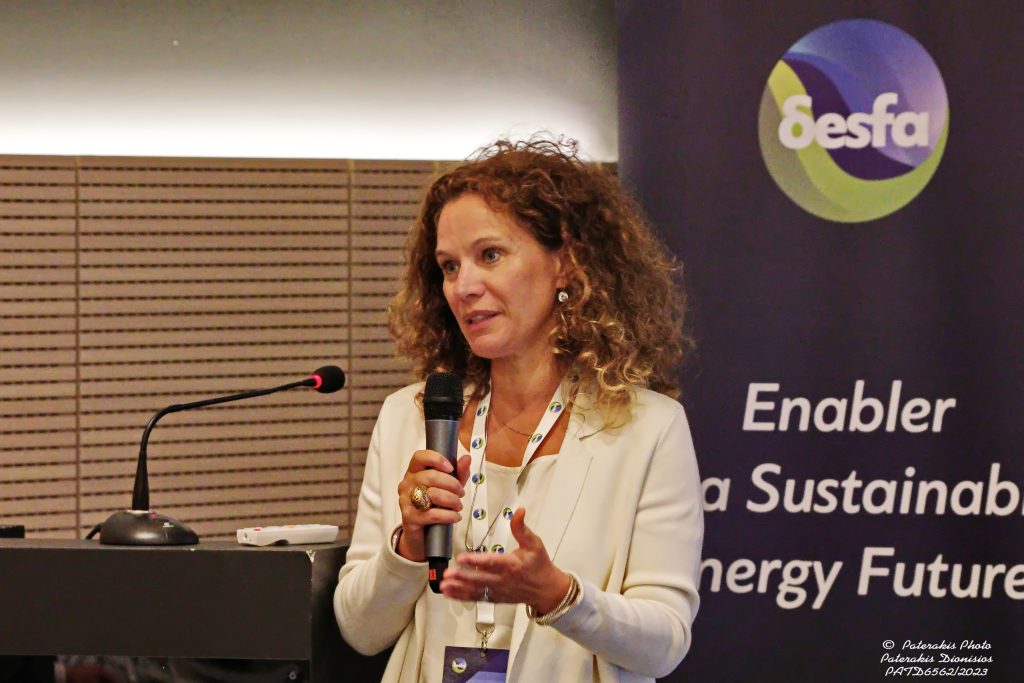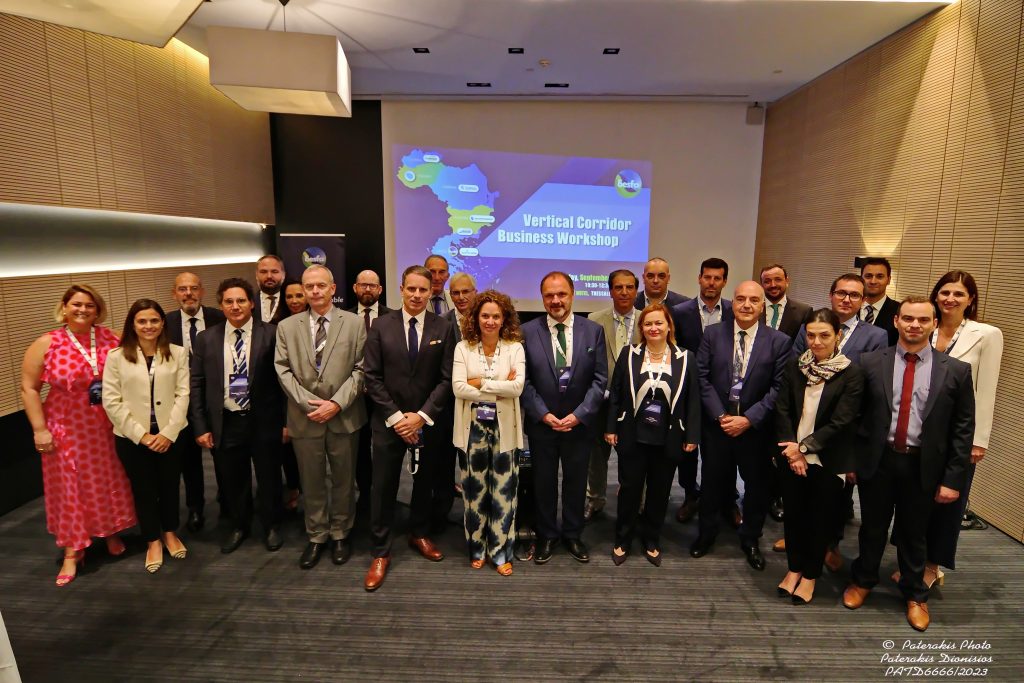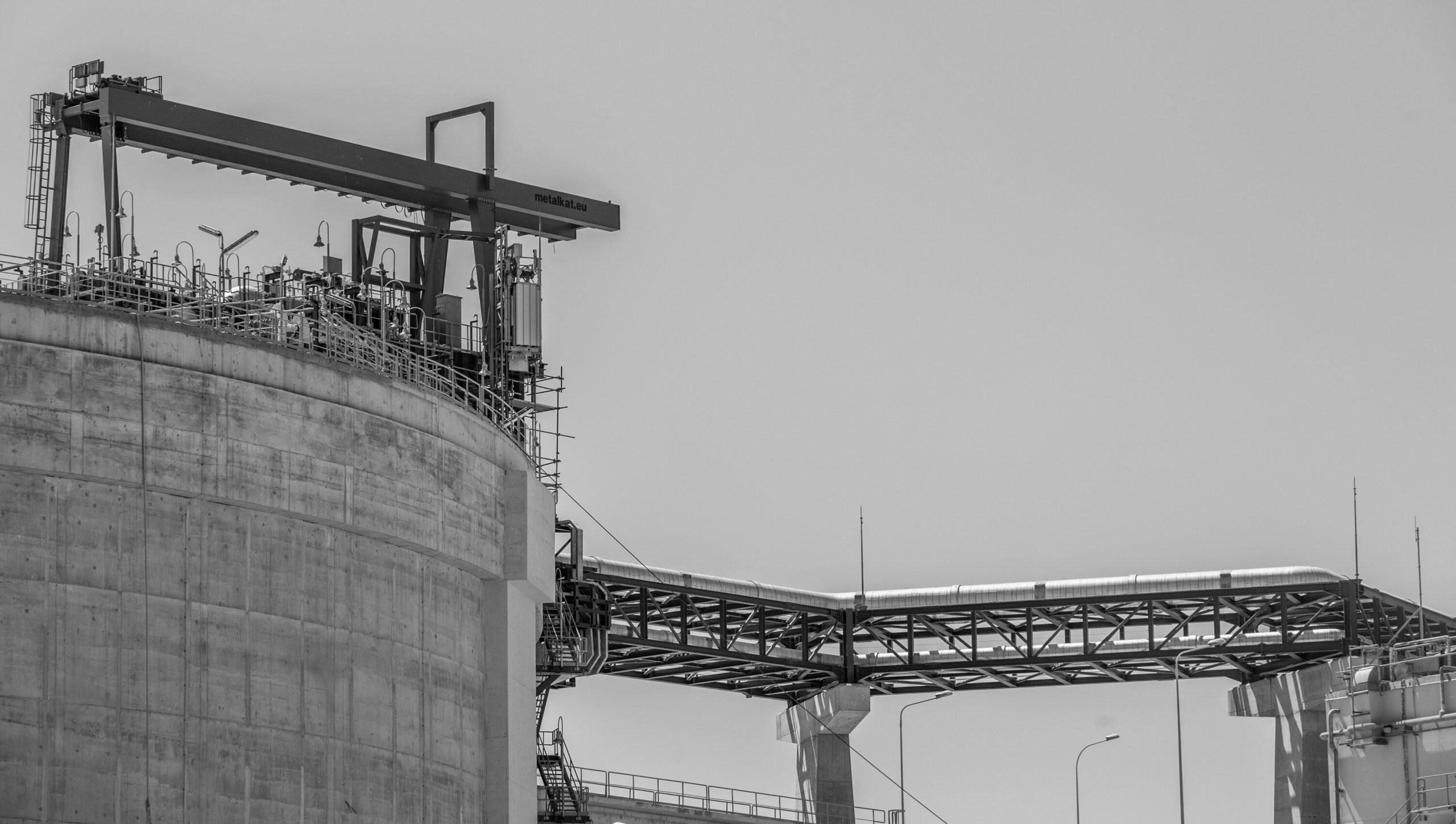
The working meeting for the Natural Gas Vertical Corridor, organized by DESFA in Thessaloniki, concluded with the participation of Gastrade, ICGB, Bulgartransgaz, Transgaz, FGSZ, and EUSTREAM (as observer), which operate natural gas and LNG transmission systems in Greece, Bulgaria, Romania, Hungary, and Slovakia, respectively.
During the meeting, participants acknowledged the importance of implementing targeted projects to remove bottlenecks and enhance the interconnection amongst the networks of the mentioned countries, enabling bidirectional natural gas flows from the South to the North and vice versa. This will ensure energy security and diversify Europe’s sources of supply.
The representatives presented their planned investments in the systems they operate, aimed at increasing the natural gas transport capacity of the Vertical Corridor. In parallel, they presented the results of their non-binding market tests including initial estimates of future capacity demand in the interconnection points of their systems. These steps are integral to the process of enhancing the transmission capacity of the national systems in the countries involved, based on the provisions of EU Regulations.
At the same time, the participants agreed to take coordinated actions with the aim of implementing the necessary investments and finalizing the process of allocating future transport capacity through their networks by 2024. To this end, they agreed to establish a relevant working group to accomplish this effort in consecutive meetings, starting in Sofia in October 2023.
The activation of the Vertical Corridor will significantly enhance the role of involved countries in security of supply of the EU energy market, by providing the opportunity of access to diversified natural gas supply sources through European transmission and LNG systems. This potential will expand further with the use of the infrastructure for renewable gases and hydrogen.
Maria Rita Gali, CEO of DESFA, commented, “In today’s rapidly evolving energy landscape, it is vital to have collaboration in the region for developing flexible gas pathways, ensuring the optimal use of our infrastructure, making it more cost effective and future proof. We are truly happy that we had the chance to meet with our counterparts in the region, strengthening our collaboration in order to allow for the seamless gas flow in Southeast and Central Europe eliminating any bottlenecks in our systems. This will enhance security of supply, storing capabilities of all countries, further diversifying gas supplies and allow for further optimization of our collective infrastructure. In such a versatile energy environment, it is critical we solidify the long-term supply security, not just for the region, but also for Europe as a whole.”









